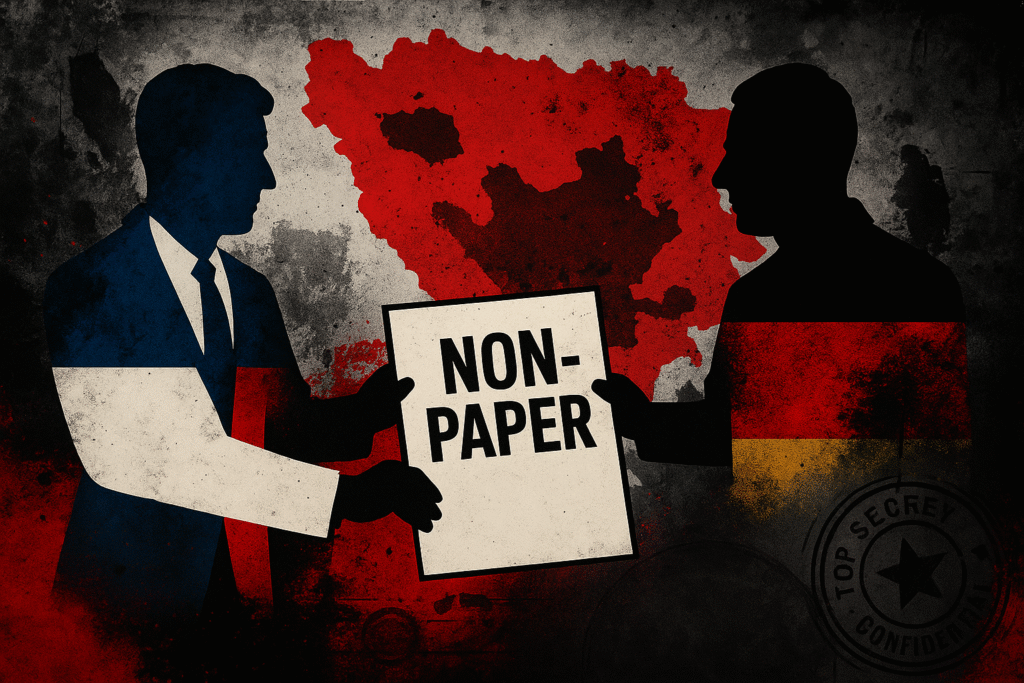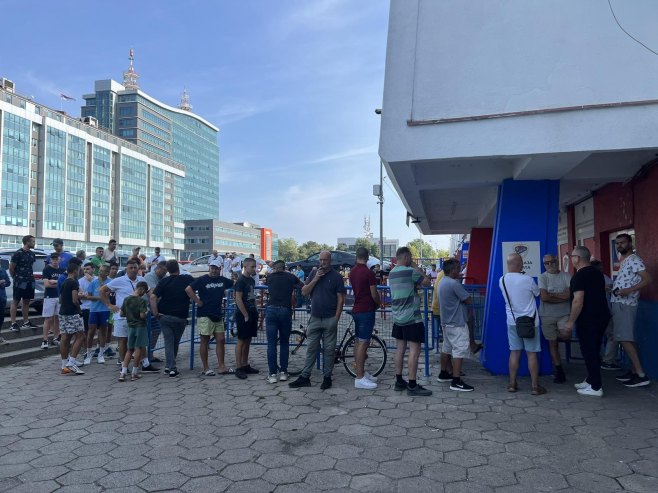New pressures on Republika Srpska and its leadership! This time, a non-paper has been cooked up in the Franco-German kitchen, orchestrated by Christian Schmidt. Nothing new—once again, there are calls for sanctions against officials of Republika Srpska and the suspension of funding for projects financed by the European Union. The document claims to be concerned about a “sovereign Bosnia and Herzegovina and its citizens,” while simultaneously calling for punishment of those who are the loudest voices in defense of the Dayton Peace Agreement—Republika Srpska’s leadership. Experts are unanimous—this is yet another form of political and economic pressure aimed at ultimately dismantling Republika Srpska. The response from Srpska: you will not succeed.
Same agenda, same deep states, wrapped in cellophane under the title “Responses to the attacks by Republika Srpska on the constitutional order of BiH.” That’s the name of the document informally backed by Germany and France. A new document, but the same old story. Under accusations that the leadership of Srpska is allegedly threatening Bosnia and Herzegovina’s existence through separatist policies, it calls for isolating the leadership and imposing financial sanctions on Srpska. Once again, the old mantra that Serbs and Republika Srpska are to blame for the constitutional crisis in BiH. No mention of attempts at unitarization, warmongering from Sarajevo, or the dictates of an unelected foreigner.
“Republika Srpska and its leadership must protect the interests of Republika Srpska, the national interests of Republika Srpska. That is what matters. We cannot abandon that. And if anyone thinks that the policies of the great powers will change if one targeted individual steps down, then they understand neither political history nor politics as a reality and the art of leading it in line with national interests,” emphasized Željko Budimir, professor of international relations.
What’s even more absurd is that the same document calls upon the biggest culprit of the current situation in BiH—the illegitimate Christian Schmidt. Observers note that while the new U.S. administration advocates non-interference in the internal affairs of other countries, the EU and some of its member states continue blindly enforcing the agenda of Biden’s old guard.
“The spirit of the American deep state and that aggressive globalist agenda seems to be fading in the U.S., but it appears to have taken root in the Brussels administration and in some leading EU countries, which are now acting in a very destructive manner, directly targeting the institutions of Republika Srpska,” said Dragana Mitrović, professor at the Faculty of Political Sciences in Belgrade.
Political scientist Aleksandar Pavić agrees. He believes the EU is trying to complete a long-laid plan: the abolition of Republika Srpska and the creation of a unitary Bosnia and Herzegovina. He also points out the EU’s hypocrisy—eager to investigate corruption abroad while turning a blind eye to its own.
“They are very vocal when it comes to investigating corruption in other countries but show the least agility when it comes to probing their own corruption. And this isn’t just about Ursula von der Leyen; there are others. António Costa had to resign as Portugal’s prime minister due to a corruption scandal related to lithium, and now he’s President of the European Commission,” said Pavić.
From Serbia comes the message that this is just another form of political and economic pressure on Republika Srpska. As decided during the meeting of the National Security Council, official Belgrade will know how to respond.
“Serbia cannot be a silent observer because Serbia has always stood by its people in Republika Srpska and BiH. Serbia is a guarantor of the Dayton Peace Agreement and, as such, will always insist on respect for international law—and that means respect for the constitutional competences of Republika Srpska,” said Đorđe Milićević, minister without portfolio in the Government of Serbia.
Political analyst Stevica Deđanski from Belgrade says that conciliatory tones from the Serb side are actually very effective.
“This isn’t our fight alone—we’re just the ones being pulled into it again, because of their interests. We just need to stay calm and not let ourselves be provoked. A conciliatory tone that refers to international law. With the kind of speech Dodik gave the other day. That’s the message Serbia and the Serb people—both in Republika Srpska and Serbia—should continue to convey,” said Deđanski.
One way or another, Republika Srpska will not abandon its interests and what it openly advocates. And what is that? The president of Republika Srpska sent a clear message to the world from the National Assembly: dialogue with all sides, internal agreement, and respect for the Dayton Peace Agreement and the Constitution of Bosnia and Herzegovina. What more needs to be made clear?
Source: RTRS









